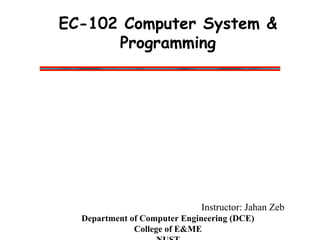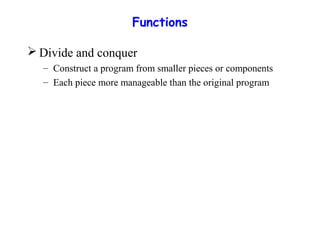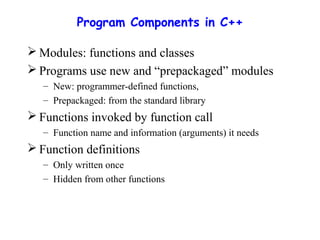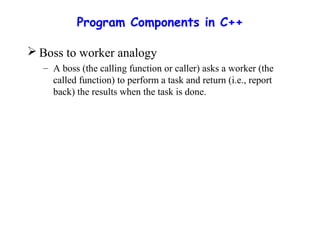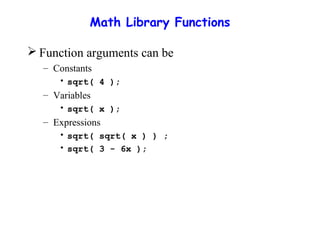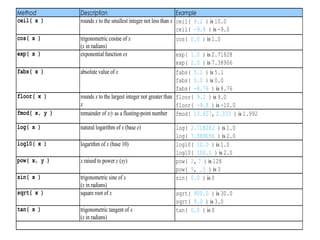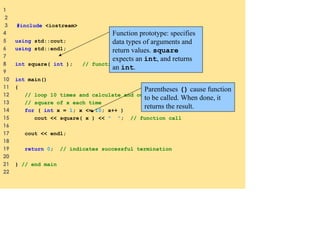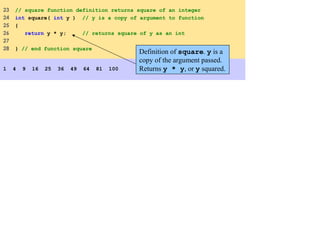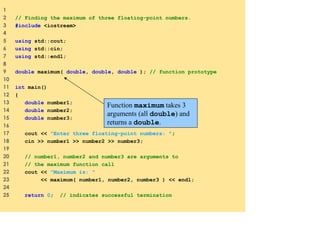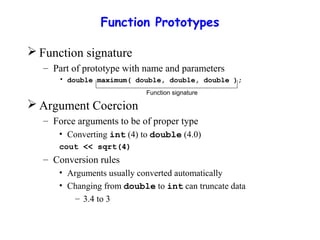The document discusses functions in C++. It defines functions as modular pieces that divide programs into more manageable components. It describes function components like modules, functions, classes, and function calls. It provides examples of math library functions and how to define, call, and prototype functions. It also covers function parameters, return types, and scope rules for local variables and storage classes.
